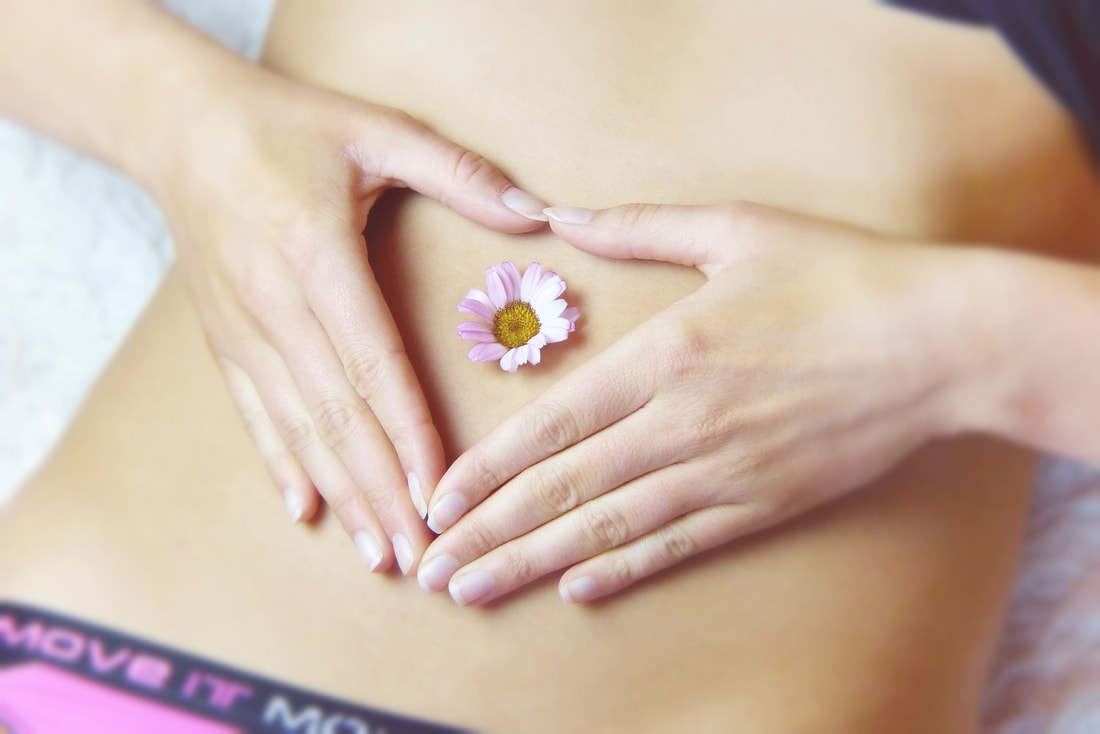|
At the recent Physical Therapy Tristate Conference, one of the talks was on the problem of pain in the United States. It's no wonder since there is an epidemic on opioid use. Some of the lesser-known facts about opioids include: Opioid use was promoted by an editorial in a medical journal, not a study; Low back pain is the number one condition for which opioids are prescribed.
It is estimated that 1 out of 4 people who are prescribed opioids go on to chronic abuse. It has been shown that patients who are referred to physical therapy in the first 90 days of pain have fewer doctor visits, deceased MRI's, decreased surgery, decreased injections, decreased opioid use and overall decreased medical costs. It turns out that if patients are given an MRI first before physical therapy, they are 5 times more likely to have injections and 4 times more likely to have surgery. On average, less than 7% of patients received physical therapy in the first 90 days. Where you enter the medical care system determines which pathway of care you take. Entering the physical therapy, chiropractic or acupuncture pathway ends up in lower costs, low opioid usage and more functional outcomes. Getting MRIs before these types of care leads to more use of opioids and surgery. Advanced imaging tests like MRIs often will show degenerative changes even with people who have no pain or functional loss. Changes in the joints are normal with aging, similar to wrinkles on the face, and don't necessarily mean that surgery is necessary. There was an article in the newspaper about a sports injury orthopedist who did MRIs on professional athletes who were at the top of their game and had no problems with their joints. He state that he could justify almost any surgery by the MRI tests to any insurance company, even though there was no need for surgery. He further stated that there are probably a fair number of unnecessary surgeries performed because of these MRI results. What's more, the speaker said there is a 75% disagreement among surgeons on how to treat the patient after looking at the MRI. in 2011, long-term outcomes were looked at in a Worker's Compensation population for 725 back fusions. One in four went on to have a second surgery. One in three had serious complications. There out of four never returned to work. A Swedish study showed no change in outcome after 10 years with conservative care versus surgery. In summary, patients did better and costs were significantly less, when they went on the pathway of conservative care, manual therapy and exercise. It also turns out that, much to the surprise of healthcare providers, 78% of patients prefer to try methods other than drugs or surgery.
0 Comments
As a physical therapist, I have been placed in a unique advantage to see life from a variety of perspectives. perhaps it is because physical therapists get to spend time with their patients in a very positive environment - working towards getting more function, relieving pain in a very soothing way by touching the patient, getting to know the patient's support system and other aspects that are impacting their lives. As a result of working with people from all walks of life, I have come to the conclusion that most people want to be happy and safe, doing things without pain and being able to live life without trouble. Some fear losing their memory, others fear suffering at the end of their lives and others are still searching for acceptance.
At any rate, life moves quicker than we like, it's always changing it seems to get harder to make it through the day as we get older. More than once I have been told to never grow old. Some people have a hard time losing friends or having family move away. Some widows miss their spouses and can't seem to live a happy life in a world of couples. Others get depressed over lower energy and not being able to do 15 different tasks per day like before. And it is really challenging when one suffers a major loss of function with a stroke, serious illness, or traumatic injury. So, what defines wholeness? Does one have to be totally healthy? Be in a meaningful relationship? Be a productive member of society? Be able to travel the world? Be able to drive a car? Have friends? I suppose we are all in a state of becoming so we may never feel like we are whole. Maybe it would be better to be in a state of now, just as we are, no more, no less. If we could accept who we are at this point in time, then maybe, we can be whole just as we are, no more, no less. I try to remember to be in the state of now by remembering the lyrics to a song, "Love the one you are with." Then I am not looking forward to some point in the future, but can enjoy the present moment. My father used to say that you can be miserable by focusing on the flaws of people or the neighborhood, or you can be happy by focusing on the good in any situation. He said there is good and bad in everything. All I can say is that you will find what you are looking for. I have never wanted to be the type of person who is always looking forward to the next vacation, the next holiday, or the next major event. I have always strived to enjoy nature, which can be found in and outside my house or office. To be able to enjoy the company of friends, or strangers. To find the joy in the task at hand. In doing so, I'm able to feel whole. Many doctors are now saying that disease processes affecting many different systems have a common cause - cellular imbalance. It boils down to nutritional deficiencies or toxic overload. Chinese medicine feels that all illnesses begins with a yin and yang imbalance. Doesn't that sound similar?
One of the best things about this explanation of disease is that there is something each individual can do to improve the condition. The hope of making a difference is such wonderful relief. There are different ways to improve a condition, and the more you know about what is contributing to this imbalance, the more specific you can be to implement changes to make things better. For example, sometimes just improving hydration will improve cellular functioning. There is a book titled, "You're Not Sick, You're Thirsty," and the doctor/author was able to improve many conditions merely by having the person increase their water intake. Another way of improving cellular health is to increase vitamins and minerals in your diet by eating more fresh fruits and vegetables. Sometimes nutritional supplementation is required, especially if testing indicates a deficiency in certain nutrients, but check with your primary doctor before you take any supplements. Rest might be another way to improve cellular health, especially when the body is fighting an infection or recovering from trauma. In conclusion, complete rest is often recommended, which means no television, no cell phones, no reading, and trying as much as possible to keep the brain quiet in the early phases of healing. Movement and exercise are also ways to improve blood flow, increase substances in the body that help to reduce inflammation, improve mood, and help restore flexibility, strength and stamina. Elimination of waste material improves with movement. Meditation, relaxation exercises, yoga, tai chi, and qigong are likewise instrumental in improving cellular health. Health improves when you avoid exposure to toxins from household cleaning products, skin care and cosmetics, pesticides and herbicides, food additives, plastics, environmental pollution, and electromagnetic radiation from Wi-Fi, computers and cellphones. There are foundational basics to include in your daily routine to maximize cellular health. The founding fathers of Western and Eastern medicine all stated that health begins with your daily habits and that prevention is far superior to curing a condition that has already taken root. The United States ranks 42nd in comparison with other countries in overall health, despite the fact that we spend double for healthcare costs. Something must be done to improve our ratings so that we are healthier and able to reduce our risk for bankrupting our economy. Maybe it is time to change our focus in healthcare to maximizing wellness versus eliminating illness. Each and every one of us can take steps to improve our health by making a change in our lifestyle habits. Start by trying to improve your diet by 10%, increase your sleep by 10%, move more by 10%, learn to relax and enjoy the moment by 10% and keep improving all of these on a weekly basis. It will result in feeling better, looking better, being more productive, save money and have more energy. Don't wait, you can start right now.  Image by silviarita from Pixabay Please join us at Yonemoto Physical Therapy for a night to learn more about your digestive health and microbiome of your body. Find out ways to get rid of toxins from your body to start feeling better and healthier to take on the rest of the new year. Presented by Sheila Yonemoto.
Location: Yonemoto Physical Therapy 55 S. Raymond Ave, Suite 100 Alhambra, CA 91801 Time: 7:00 PM to 8:30 PM Date: January 15, 2020 (Wednesday) Price: FREE Please use side entrance across from the restrooms on the ground floor. Parking is available on the street or in the lot for the medical building. Upcoming Lectures: Every other Wednesday there will be a CBD Oil lecture available for those who wish to know more about CBD oil and how it can help you. Lectures are by appointment only, please call (626) 576-0591 for more info. Lectures will be given at YPT and presented by Sheila Yonemoto |
Sheila’s BlogI focus on the topics you care about most. Categories
All
Archives
February 2022
|
|
55 S. Raymond Ave. Suite 100
Alhambra, CA 91801 Main Phone: (626) 576-0591 Alternate Phone: (626) 538-3966 Fax: (626) 576-5890 Email: yonemotoptfinance@gmail.com |
© 2015 Yonemoto Physical Therapy. ALL RIGHTS RESERVED.
|


 RSS Feed
RSS Feed